ORGANIC Chia seeds
Salvia hispanica
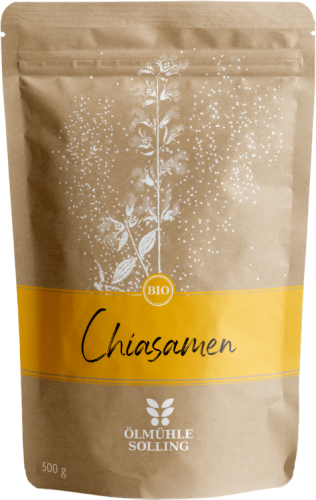

- 100% certified organic
- High in omega-3 fatty acids
- Rich in protein (approx. 22 g per 100 g)
- High in fibre (approx. 32 g per 100 g)
- ideal for muesli, bread and baked goods
from 625 ratings
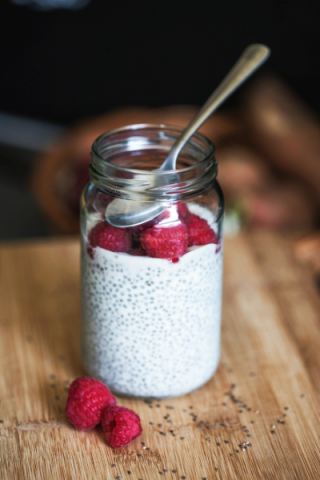 Chia seeds with yogurt make a delicious dessert.
Chia seeds with yogurt make a delicious dessert.Chia seeds from the Ölmühle Solling are organically grown and have a high content of omega-3 fatty acids and are versatile in the kitchen. The seeds of the South American plant Salvia Hispanica L. are considered a superfood in Germany. Our Chia Seeds are unsulphured, 100% vegan and GMO free. The seeds of the chia plant were valued by the Aztecs, Mayas and Incas of Central and South America as a nutrient-rich source of energy and were considered a staple food and remedy in one. The word 'chia', which comes from the Mayan language, also means 'strength'. In Germany and Europe, the small, black seeds from South America have become an indispensable ingredient in breakfast cereals and baked goods.
Valuable omega-3 fatty acids
Chia seeds are high in omega-3 fatty acids, also known as alpha-linolenic acid, or ALA. This essential fatty acid helps maintain normal cholesterol levels. A daily intake of 2g of ALA, which is equivalent to 11g of chia seeds, will have the same effect.
Chia seeds swell with water to form a gel-like mass. They are therefore often used as an ingredient in cereals, smoothies, breads and baked goods. The ideal ratio of chia seeds to water is 1:6. According to the EU Novel Food Regulation EC 258/97, chia seeds are suitable for consumption up to a maximum of 15g per day. The maximum daily intake of 15g should not be exceeded. Enjoy our Organic Chia Seeds as part of a varied and balanced diet. Store well closed in a dry and cool place.
Carbon neutral and environmentally friendly packaging
We package our organic chia seeds in CO2 neutral, sustainable bags. These are made from over 80% renewable resources and are completely aluminium free. A large proportion of the commonly used polymers are replaced with renewable raw materials, such as paper from sustainable forestry (FSC certified). The light-protected, eco-friendly packaging can be resealed after initial opening, protecting the valuable quality of our chia seeds. The bags are produced in Europe under socially responsible conditions.
Usage
Chia seeds swell with water to form a gel-like mass. They are therefore often used as an additive in mueslis (max 10%), smoothies (max 5%) and in bread and bakery products (max 10%). According to the EU Novel Food Regulation EC 258/97, chia seeds are suitable for consumption up to a maximum of 15g/day. Store in a tightly closed container in a cool, dry place.
Recipe
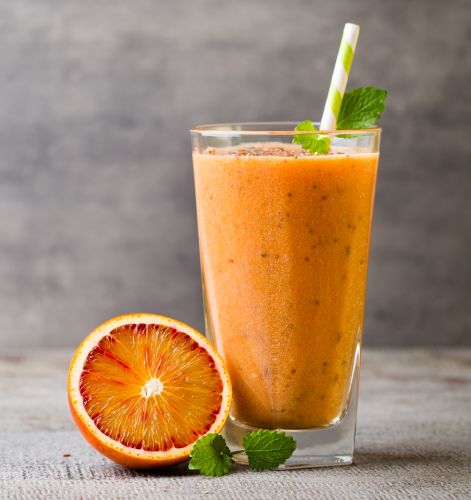
Smoothie with rosehip powder
Recipe for a smoothie with blood orange, papaya and fresh mint. With rosehip powder from organic rosehips. zum Rezept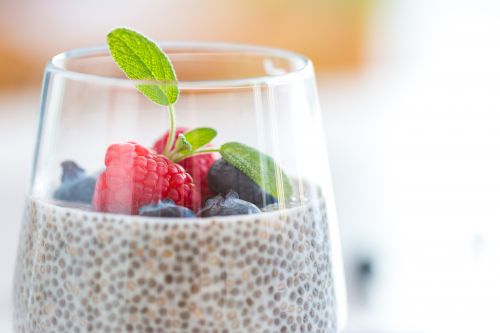
Porridge with chia seeds
Recipe for porridge with chia seeds. Coconut flower sugar makes it ideal for diabetics. Without refined sugar. Garnished with blueberries and raspberries. zum Rezept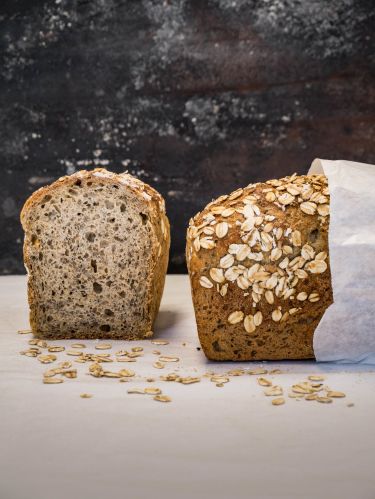
Chia bread
Moist chia bread pairs perfectly with coconut oil or coconut butter as spreads. Keep in the fridge for longer durability. zum Rezeptweitere Rezepte
Ratings
Specification and ingredients
Chia seeds
Average energy and nutrient content for 100 g
Please enjoy our products as part of a diverse and balanced nutrition.
As a product of nature the composition of the oil can vary, the given specifications are therefore average values.
Ingredients
Chia seed, certified organicMaximal erlaubte tägliche Verzehrsmenge
15 g / personDurability
9 - 12 monthsLagerung
Store in a cool and dark place.Fatty acids diagram





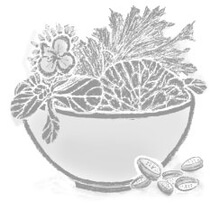
 Hemp seed oil
Hemp seed oil Chia flour
Chia flour Hemp seed flour
Hemp seed flour Chia oil
Chia oil